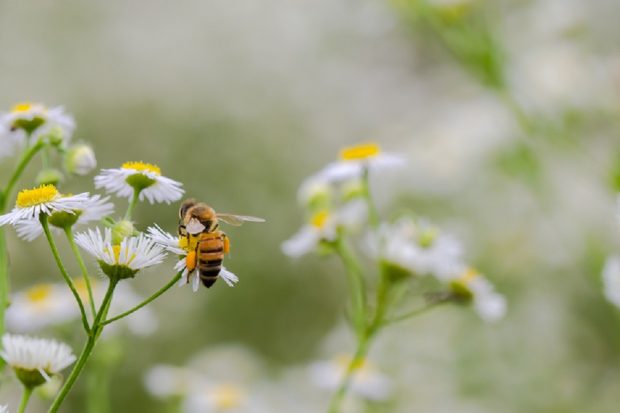
The Defra-coordinated annual Bees’ Needs Week got underway today this week with an online launch to highlight what everyone can be doing at home to care for pollinators.
There was coverage in the Times, the Independent, the Guardian, MailOnline and the Ecologist of a new B-Lines project by BugLife and funded by Defra, which will create an interconnected web of potential and existing wildflower habitats across the UK, aiming to help restore populations of insects.
Bees’ Needs Week 2020 sees Defra and many other organisations working together to encourage everyone who can to do simple things at home - like growing more flowers and cutting grass less often - to help our precious pollinators thrive, and to engage further with nature through citizen science initiatives such as the Pollinator Monitoring Scheme’s (PoMS) insect counts.
Defra Minister for pollinators, Rebecca Pow, said:
This year, we have seen an increased appreciation for nature in England in response to the Coronavirus pandemic with the nation building back greener.
Bees’ Needs Week is about celebrating the fact that everyone can get involved by leaving patches of garden to grow wild, growing more flowers, cutting grass less, not disturbing insect nests, and carefully considering how we use pesticides.
Our ambitious Environment and Agriculture Bills will enable us to enhance and protect our precious natural environment and diverse ecosystems, improving habitats for pollinators, for years to come.
Natural England Chair, Tony Juniper, said:
Bees maybe small, but they have a huge impact on how our world works. These wonderful insects are a kind of natural glue, holding the environment together by moving pollen between plants, enabling whole systems to be sustained and replenished. Without bees, we could not live.
Although overall the status of pollinators has declined, the good news is that everyone can do something to help. Many of us have been more connected with Nature during the pandemic lockdown and I very much hope that this newly-found reverence for our environment can be harnessed to ensure pollinators’ habitats, populations and products are protected for the future.
Whether you are a farmer, a gardener, or a land manager, there is something you can do to help support our valuable insect pollinators.
Here are five simple actions you can take to help pollinators and make sure their populations are sustained:
- Grow more flowers, shrubs and trees
- Let your garden grow wild
- Cut your grass less often
- Don’t disturb insect nest and hibernation spots
- Think carefully about whether to use pesticides
Another way people can help is by monitoring your local bee and pollinator populations. Spend 10 minutes in the sun to count insects for the UK’s Pollinator Monitoring Scheme (PoMS), and get involved on social media using #beesneeds.
1 comment
Comment by William Hughes-Games posted on
Curiously, contrary to widely disseminated information, farms that adopt eco-agriculture with an emphasis on restoring soil and growing diverse crops at the same time actually produce more food than industio-agriculture. With the greater diversity of crops and much less pesticides needed, the bees prosper. Read Growing A Revolution by Montgomery to get a feel for a better way of food production.